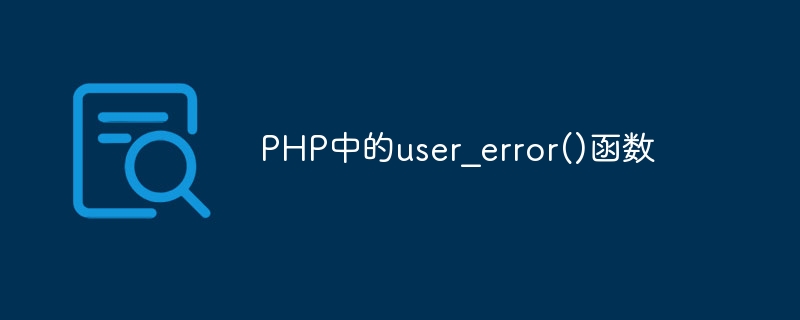Home >Backend Development >PHP Tutorial >user_error() function in PHP
user_error() function in PHP
- 王林forward
- 2023-08-25 19:33:071239browse

The user_error() function is an alias of the trigger_error() function in PHP. It is used to trigger user error conditions, either with the built-in error handler or with a user-defined function that has been set as a new error handler.
Syntax
user_error(error_msg, error_type)
Parameters
error_msg - Specifies the error message. Length limit is 1024 characters.
error_type - Specifies the error type for this error message.
-
The following are possible error types -
E_USER_ERROR - Fatal user-generated runtime error. Unrecoverable error. Execution of the script is stopped.
E_USER_WARNING - Non-fatal user-generated runtime warning. Execution of the script will not stop.
E_USER_NOTICE - Default value. User-generated runtime notifications. The script found something that may be an error, but may also occur while running the script normally.
Return value
If the wrong error type is specified, the user_error() function returns FALSE, otherwise it returns TRUE.
Example
The following is an example -
Demo
<?php
if ($demo<10) {
user_error("Number cannot be less than 2");
}
?>Output
The following is the output -
PHP Notice: Undefined variable: demo in /home/cg/root/4127336/main.php on line 2 PHP Notice: Number cannot be less than 2 in /home/cg/root/4127336/main.php on line 3
The above is the detailed content of user_error() function in PHP. For more information, please follow other related articles on the PHP Chinese website!

